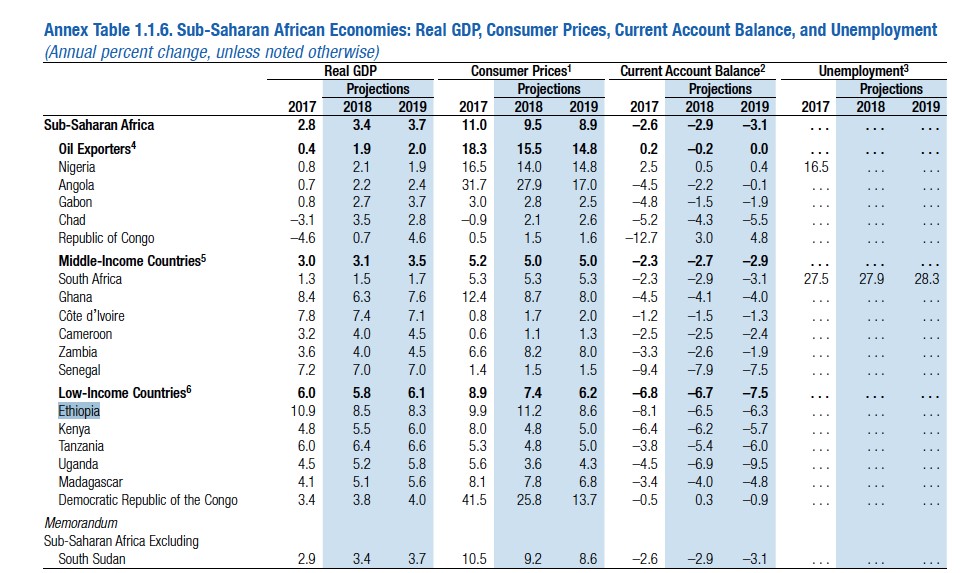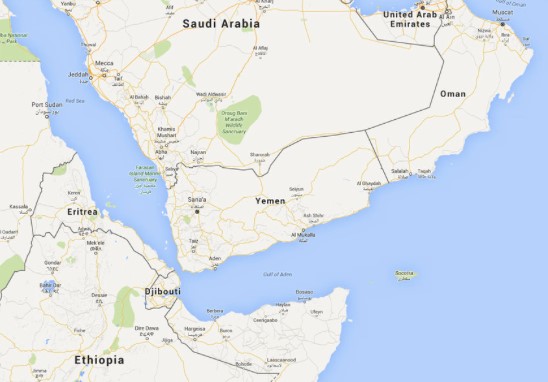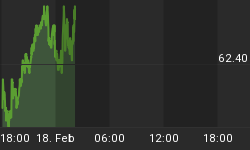Africa is being remade by the Chinese, and there’s no better example than agrarian Ethiopia, which was the poorest country in the world not too long ago.
It’s even replaced Ghana as Africa’s fastest-growing economy this year—even though Ghana is home to major new oil exploration projects.
The International Monetary Fund (IMF) predicts that Ethiopia will see economic growth at an 8.5-perent rate this year, compared to Ghana’s 6.3 percent.

(Click to enlarge)
Once one of the world’s least developed economies, Ethiopia has achieved double-digit growth in recent years and was already the fastest-growing country in East Africa. Now it’s widening its net for a bigger ranking.
While Ghana’s got oil, Ethiopia’s been luring in big investors, most of the Chinese, but also General Electric (GE), and it’s gross domestic product is nearly double that of Ghana at this point.
GE sees Ethiopia as a major energy infrastructure hub for Africa. Across the continent, GE has over 2,600 employees and $3.9 billion in revenue in 33 countries. It’s been in Ethiopia for 9 years.
But it’s nothing compared to the Chinese influence.

(Click to enlarge)
All told, Ethiopia attracted $4.2 billion in FDI in 2016-2017, according to the Economist Intelligence Unit, and that’s been growing. The bulk of that FDI is Chinese, and Beijing views the East African country as a key spot along its ‘Belt and Road’ infrastructure project.
The government of Ethiopia is planning to invest $20 billion in the power sector, and it’s also hoping to turn itself into a major tourist destination. The Chinese are happy to help.
For China, Ethiopia is strategically positioned right next to Djibouti—the miniscule port state in the Horn of Africa. Here, there is a Chinese naval base, and here the Chinese can access European markets thanks to the Suez Canal.

(Click to enlarge)
And if the massive infrastructure isn’t enough, investors also appreciate the cheap labor. Related: The World’s First Trillionaire Will Be A Space Miner
As Bloomberg puts it, China’s turned Ethiopia into a “giant fashion factory”.
According to Johns Hopkins University School of Advanced International Studies, China loaned Ethiopia $10.7 billion from 2010 to 2015, most of which is currently be spent on lucrative contracts for Chinese companies. Those companies are building dams, roads and cellular networks with cheap Ethiopian labor, Bloomberg reports.
“The plan is to create a total of 2 million jobs in manufacturing by the end of 2025,” Bloomberg quoted the Ethiopian Investment Commission as saying—and this would be an end to the days that Ethiopia was considered an agrarian nation.
Politically speaking, though, it’s not going to be quite that easy.
In February, a state of emergency was declared amid political unrest after the prime minister announced his intention to resign in the middle of a political crisis. Now they’ve got a new prime minister and a new cabinet, and if the calm holds, they might just realize their non-agrarian, middle-class dream funded by the Chinese.
It’s just another example of how China is beating everyone else to the punch in Africa.
Between 2000 and 2014, China gave out over $86 billion in commercial loans to African governments, and in 2015, they pledged $60 billion more.
Once it secures Ethiopia as its key connector to the port of Djibouti and the Suez Canal, there won’t be anything to stop the massive paving of the Belt and Road to global dominance.
By Josh Owens for Safehaven.com
More Top Reads From Safehaven.com:

















